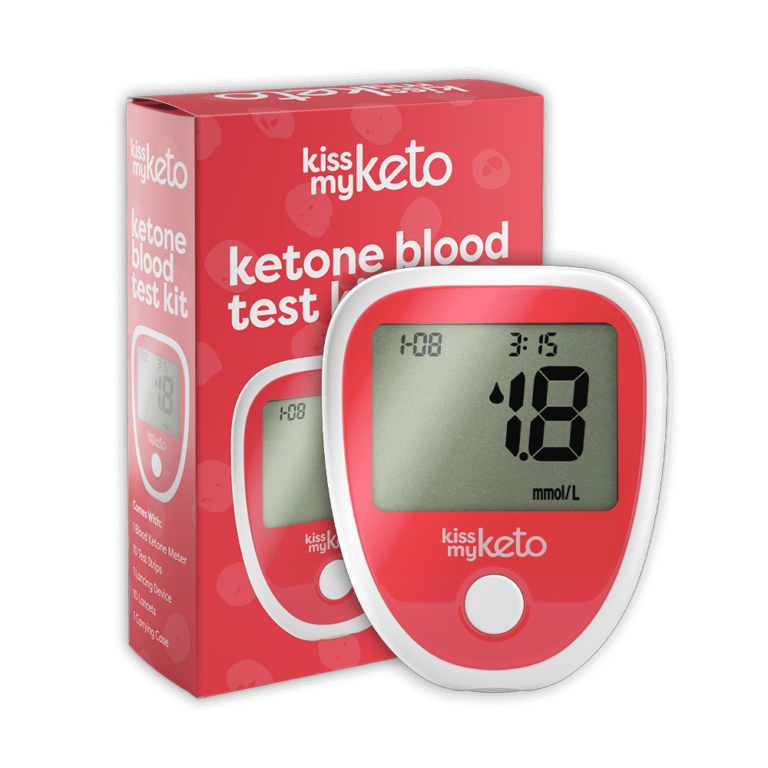I. Introduction
Gut health is pivotal to overall well-being, as it plays a crucial role in the proper functioning of our immune system, digestion, and nutrient absorption. The gut, or gastrointestinal tract, is a complex ecosystem inhabited by trillions of microorganisms collectively known as the gut microbiota.
When this delicate balance is disrupted, it can lead to various gut disorders and compromise overall health. Inflammation is a natural response by the body’s immune system to protect against harmful stimuli such as pathogens or irritants.
However, when inflammation becomes chronic and persists in the gut, it can contribute to the development of several disorders. Inflammatory bowel diseases (IBD), such as Crohn’s disease and ulcerative colitis, are prime examples of conditions characterized by excessive inflammation within the gastrointestinal tract.
Additionally, irritable bowel syndrome (IBS) and leaky gut syndrome are common ailments associated with chronic inflammation in the gut. The ketogenic diet has gained considerable attention for its potential therapeutic effects on various health conditions.
Originally used to treat epilepsy in children since the 1920s, this low-carbohydrate diet has shown promising results not only in managing seizures but also in addressing other conditions like obesity, metabolic syndrome, and even certain types of cancer. Interestingly, recent scientific research suggests that adopting a ketogenic diet may also have positive implications for reducing gut inflammation.
The ketogenic diet involves significantly reducing carbohydrate intake while increasing consumption of healthy fats and moderate protein. By restricting carbohydrates – which typically break down into glucose during digestion – the body enters a state called ketosis.
In this metabolic state, instead of relying on glucose for energy production like most cells do under normal circumstances, ketones derived from fatty acids become the primary fuel source for cells throughout the body. This shift from glucose metabolism to ketone utilization may play a role in modulating immune responses within the gut by dampening inflammatory processes.
Moreover, some studies suggest that ketones may possess inherent anti-inflammatory properties, further bolstering their potential as therapeutic agents. Thus, exploring the impact of the ketogenic diet on gut inflammation holds promise for providing new insights into managing and improving gut health.
Understanding the importance of gut health and recognizing the role of inflammation in contributing to various gut disorders sets the stage for investigating how the ketogenic diet can potentially alleviate gut inflammation. By delving deeper into this topic, we can explore the mechanisms through which ketosis may influence immune responses in the gastrointestinal tract and ultimately provide guidance for individuals seeking a dietary approach to manage or reduce gut inflammation.
II. Understanding Gut Inflammation
Gut inflammation, also known as enteritis, refers to the immune response that occurs in the intestines when they are exposed to pathogens or irritants. It is an essential defense mechanism of the body, aimed at protecting against harmful substances and promoting tissue repair.
However, when this immune response becomes chronic or excessive, it can have detrimental effects on gut health. The causes of gut inflammation are diverse and can vary from person to person.
Infections caused by bacteria, viruses, or parasites can trigger an inflammatory response in the gut. Additionally, certain dietary factors such as high intake of processed foods, refined sugars, unhealthy fats, and additives have been associated with increased gut inflammation.
Moreover, chronic stress and a sedentary lifestyle can contribute to inflammation in the gut. When pathogens or irritants enter the gastrointestinal tract, the immune system responds by releasing various molecules and cells that help eliminate these threats.
This immune response involves specialized cells such as macrophages and lymphocytes that release pro-inflammatory molecules like cytokines and chemokines. These signaling molecules attract more immune cells to the site of inflammation for defense purposes.
Chronic inflammation in the gut can significantly impact overall gut health. Prolonged exposure to pro-inflammatory molecules can damage the intestinal lining and compromise its barriers function.
This disruption may lead to increased permeability known as leaky gut syndrome wherein harmful substances penetrate into circulation triggering further systemic inflammation. Inflammatory bowel diseases (IBD) are commonly associated with chronic gut inflammation.
Conditions such as Crohn’s disease and ulcerative colitis are characterized by ongoing inflammations in different regions of the digestive tract. Irritable bowel syndrome (IBS), although not considered an inflammatory disorder per se, shares similarities with IBD regarding symptoms including abdominal pain/discomfort and altered bowel habits.
Understanding these aspects is crucial because a better comprehension of gut inflammation allows us to explore potential strategies for managing and reducing it. By addressing the underlying causes and effects of gut inflammation, we can take steps towards optimizing gut health and mitigating the risk of related conditions.
III. How the Keto Diet Can Influence Gut Inflammation
The ketogenic diet, known for its low-carbohydrate and high-fat approach, holds immense potential in influencing gut inflammation by targeting various underlying factors. One of the primary ways the keto diet can contribute to reducing gut inflammation is through the reduction of pro-inflammatory foods.
Many traditional Western diets are abundant in foods that promote inflammation, such as processed meats, refined sugars, and excessive omega-6 fatty acids. By shifting to a ketogenic diet, individuals can limit their intake of these pro-inflammatory foods and instead focus on consuming more anti-inflammatory options like fatty fish, leafy greens, and healthy fats like avocado and olive oil.
Moreover, the elimination of processed and refined carbohydrates is another crucial aspect of how the keto diet can influence gut inflammation positively. These highly processed carbohydrates not only lack essential nutrients but also tend to trigger spikes in blood sugar levels.
Elevated blood sugar levels prompt an inflammatory response within the body. By removing these refined carbohydrates from one’s daily meals, individuals following a ketogenic approach can stabilize their blood sugar levels and potentially reduce inflammation in the gut.
In addition to reducing pro-inflammatory foods and refined carbohydrates, decreasing intake of inflammatory oils and additives is also central to mitigating gut inflammation through a keto diet. Most processed foods contain vegetable oils that are high in omega-6 fatty acids but low in omega-3s.
This imbalance promotes chronic inflammation within the body. By adhering to a ketogenic eating pattern that prioritizes healthy fats like coconut oil or grass-fed butter instead of these inflammatory oils, individuals may experience a decrease in overall systemic inflammation.
Furthermore, one cannot overlook the potential anti-inflammatory effects directly associated with ketosis – a metabolic state achieved during adherence to a well-formulated ketogenic diet. In ketosis, the body primarily relies on ketones as an alternative energy source for cells instead of glucose derived from carbohydrates.
Emerging research suggests that ketones possess neuroprotective properties along with antioxidant actions that may help combat oxidative stress and inflammation. This metabolic shift can also contribute to modulating immune responses and reducing systemic inflammation, consequently impacting gut health positively.
The influence of the keto diet on gut inflammation extends beyond just nutritional changes. By modulating immune responses and inflammation, this dietary approach may help create a more balanced environment within the gut.
Emerging evidence suggests that ketosis can regulate the production of inflammatory cytokines, which are signaling molecules involved in immune response regulation. By promoting an anti-inflammatory state, the ketogenic diet may aid in preserving gut barrier integrity, reducing intestinal permeability (leaky gut), and preventing excessive immune activation that contributes to chronic gut inflammation.
Overall, the ketogenic diet can exert a profound influence on gut inflammation by reducing pro-inflammatory foods, eliminating processed and refined carbohydrates, decreasing intake of inflammatory oils and additives, harnessing potential anti-inflammatory effects of ketosis through ketones as an alternative energy source for cells, as well as modulating immune responses and inflammation within the body. By adopting this dietary approach mindfully and ensuring a well-balanced intake of essential nutrients, individuals may pave their way towards improved gut health while simultaneously managing underlying factors contributing to chronic inflammation in the gastrointestinal tract.
IV. Strategies to Manage Gut Inflammation on the Keto Diet
Emphasizing anti-inflammatory foods is a key strategy for managing gut inflammation on the keto diet. Incorporating foods that have been scientifically proven to reduce inflammation can help soothe and heal the gut.
Some examples of anti-inflammatory foods include fatty fish like salmon and sardines, rich in omega-3 fatty acids which have been shown to reduce markers of inflammation. Dark leafy greens such as spinach, kale, and Swiss chard are packed with antioxidants that can combat oxidative stress and inflammation.
Additionally, incorporating berries like blueberries and strawberries into your meals provides a great source of polyphenols, which have been associated with reduced inflammation in the gut. Incorporating nutrient-dense whole foods is another vital aspect of managing gut inflammation on the keto diet.
By focusing on whole foods, you ensure that you are getting a wide range of essential nutrients while avoiding processed foods that may contain additives and preservatives that can trigger inflammation. Prioritize consuming a variety of colorful vegetables like bell peppers, broccoli, and cauliflower to obtain fiber, vitamins, minerals, as well as beneficial plant compounds called phytochemicals which possess anti-inflammatory properties.
Including omega-3 fatty acids and antioxidants is crucial for reducing gut inflammation on the keto diet. Omega-3 fatty acids found in oily fish or supplements like fish oil capsules are known for their potent anti-inflammatory effects.
Antioxidants found in fruits, vegetables, nuts (such as walnuts), seeds (such as flaxseeds), and herbs can support the body’s defense against oxidative stress caused by free radicals and promote overall gut health. Supporting gut healing and repair is an essential strategy for managing gut inflammation on the keto diet.
Consuming bone broth regularly can be incredibly beneficial due to its high collagen content. Collagen aids in repairing damaged intestinal lining by providing structural support to cells in the gastrointestinal tract.
Furthermore, glutamine supplementation may be considered as it plays a significant role in maintaining gut barrier function and promoting gut healing. Monitoring food sensitivities and triggers is crucial when managing gut inflammation on the keto diet.
Certain individuals may be sensitive to specific foods, even if they are considered healthy. Keeping a food diary and paying close attention to any changes in symptoms after consuming certain foods can help identify triggers that may be exacerbating gut inflammation.
Elimination diets, under the guidance of a healthcare professional, can assist in identifying individual sensitivities and pinpointing specific culprits that are contributing to gut inflammation. Overall, it is important to seek professional guidance for personalized recommendations when managing gut inflammation on the keto diet.
Each individual’s body responds differently, and a healthcare practitioner with expertise in gut health can provide tailored advice based on your unique needs. They can guide you through the process of identifying triggers, recommending appropriate supplements, and helping create a personalized plan that supports your overall well-being while managing gut inflammation effectively.
V. Potential Challenges and Solutions
Adjusting to the keto diet during the transition period can pose certain challenges, particularly for individuals accustomed to a high-carbohydrate diet. As the body transitions from using glucose as its primary fuel source to ketones, it undergoes several adaptations that may lead to temporary discomfort. Common challenges include experiencing fatigue, brain fog, irritability, and cravings during the initial days or weeks of adopting a ketogenic lifestyle.
To overcome these obstacles, it is important to manage expectations and gradually reduce carbohydrate intake while increasing healthy fats. This gradual approach allows the body to adapt more smoothly and minimizes the discomfort associated with transitioning.
A potential concern when starting the keto diet is the temporary increase in gut inflammation that some individuals experience. As carbohydrates are restricted and replaced with fats, significant changes occur within the gut microbiota composition.
This alteration in microbial populations can trigger an immune response and result in temporary inflammation in sensitive individuals. However, this increase is often transient and resolves as the gut microbiome adjusts to the new dietary pattern.
To minimize discomfort during this phase, it is beneficial to support gut health by consuming probiotic-rich foods like fermented vegetables or taking high-quality probiotic supplements. Additionally, including fiber from non-starchy vegetables can support bowel regularity and promote a healthy balance of gut bacteria.
Strategies aimed at minimizing discomfort and supporting adaptation during the transition period include ensuring adequate hydration by drinking plenty of water throughout the day. Dehydration can exacerbate symptoms such as headache and fatigue commonly experienced during this phase.
Additionally, incorporating electrolyte-rich foods or beverages like bone broth or homemade electrolyte drinks can help maintain electrolyte balance which may become imbalanced due to increased urination on keto diet. Individual variations play a crucial role in how each person responds to any dietary change including keto diet.
Factors such as genetics, pre-existing conditions (e.g., autoimmune disorders), medication use, stress levels, sleep patterns, activity levels all contribute towards individual variations in gut inflammation and overall health. It is important to recognize that what works for one person may not be equally effective for another.
Identifying personal triggers and underlying conditions that contribute to gut inflammation requires self-awareness, mindful observation of symptoms, and possibly seeking professional guidance. By understanding individual variations, one can better adapt the keto diet to suit their unique needs and optimize gut health.
Collaborating with healthcare professionals who specialize in gut health or nutrition can provide personalized management strategies to address potential challenges during the keto diet journey. These professionals can conduct thorough assessments, review medical history, and guide individuals through the transition period while managing any underlying conditions that may impact gut inflammation.
They may also recommend additional testing or interventions based on individual needs. Seeking professional guidance ensures safety and maximizes the chances of success when implementing the keto diet as a tool for reducing gut inflammation.
Remember, embarking on any dietary change involves adapting to new habits and overcoming challenges along the way. Recognizing potential obstacles during the adjustment period allows individuals to proactively implement solutions, minimize discomfort, and personalize their approach for long-term success on the keto diet while reducing gut inflammation.
VI. Conclusion
The keto diet holds promising potential in reducing gut inflammation and managing related disorders. By eliminating pro-inflammatory foods, such as refined carbohydrates and inflammatory oils, and promoting the consumption of nutrient-dense whole foods, the keto diet can help modulate immune responses and decrease chronic inflammation in the gut.
Furthermore, ketosis provides an alternative energy source for cells, potentially aiding in tissue repair and healing processes. Studies have shown that the ketogenic diet may have a positive impact on gut health by decreasing markers of inflammation and oxidative stress.
Inflammatory bowel diseases (IBD), such as Crohn’s disease and ulcerative colitis, have been associated with dysregulated immune responses and chronic inflammation in the gut. The reduction of dietary triggers through a keto diet can alleviate symptoms experienced by individuals with IBD by minimizing exposure to potentially inflammatory substances.
Moreover, irritable bowel syndrome (IBS) is another common gut disorder characterized by abdominal pain, bloating, gas, and altered bowel habits. While IBS has multifactorial causes that differ between individuals, studies suggest that certain dietary changes can alleviate symptoms.
The ketogenic diet’s emphasis on whole foods may provide relief for individuals with IBS by eliminating triggers commonly found in processed food like additives or artificial sweeteners. While exploring the benefits of the keto diet for managing gut inflammation is encouraging, it is essential to approach this dietary intervention with caution.
Each person’s response to specific diets varies due to individual differences in genetics, microbiota composition, lifestyle factors, and underlying health conditions. Seeking professional guidance from healthcare providers or registered dietitians who specialize in gut health can provide personalized recommendations tailored to an individual’s needs.
While more research is needed to fully understand the long-term effects of a ketogenic diet on gut inflammation management comprehensively; initial evidence suggests its potential benefits for reducing chronic inflammation associated with various gastrointestinal disorders such as IBD or IBS. By adopting a nutrient-dense, whole-food approach and eliminating pro-inflammatory substances, individuals may find relief from gut inflammation symptoms.
However, it is crucial to consider personal factors and work with healthcare professionals to ensure the keto diet is suitable and sustainable for one’s unique circumstances. By empowering individuals to explore this dietary tool responsibly, we can potentially improve gut health outcomes and enhance overall well-being.
VII. References and studies about the Keto Diet’s influence on Gut inflammation
Numerous studies have explored the effects of the ketogenic diet on gut inflammation and its potential benefits for individuals with gut disorders. This section aims to provide an overview of some key references and their findings, shedding light on the relationship between the keto diet and gut inflammation reduction.
One study published in Frontiers in Immunology examined the impact of a ketogenic diet on colonic inflammation in mice with colitis. The results revealed a significant decrease in pro-inflammatory markers such as interleukin-6 (IL-6) and tumor necrosis factor-alpha (TNF-α) in mice following adherence to a ketogenic diet.
Additionally, histological analysis showed reduced colonic inflammation, suggesting that the keto diet could potentially ameliorate gut inflammation associated with inflammatory bowel diseases. Another notable study published in Cellular and Molecular Gastroenterology and Hepatology investigated the effects of a low-carbohydrate, high-fat ketogenic diet on patients with Crohn’s disease—an inflammatory bowel disease characterized by chronic intestinal inflammation.
The study found that participants following the keto diet experienced improved intestinal barrier function and reduced levels of C-reactive protein (CRP), an inflammatory marker commonly elevated during active stages of Crohn’s disease. These findings suggest that adopting a ketogenic approach may have therapeutic potential for managing gut inflammation associated with Crohn’s disease.
In addition to animal studies and clinical trials, emerging evidence from observational research also supports the potential benefits of the keto diet for gut health. A prospective cohort study conducted by researchers at Harvard University analyzed dietary patterns among over 70,000 women over a 26-year period.
The results indicated that adherence to a low-carbohydrate diet was associated with decreased risk of developing diverticulitis—a condition characterized by inflamed pouches within the colon—compared to those following higher carbohydrate diets. Furthermore, a systematic review published in Nutrients summarized several studies exploring the effects of ketogenic diets on gut health.
The review concluded that ketogenic diets may promote gut microbial diversity, reduce inflammation, and increase beneficial short-chain fatty acid production, all of which contribute to improved gut health. However, further research is warranted to fully understand the mechanisms behind these effects and their implications for various gut disorders.
It is important to note that while these studies suggest potential benefits of the keto diet in reducing gut inflammation, individual responses may vary. Therefore, it is essential to consult with healthcare professionals or registered dietitians who can provide personalized guidance and support when considering dietary interventions for managing gut disorders and inflammation.
A growing body of research indicates that the ketogenic diet has promising potential as a tool for reducing gut inflammation. Studies have demonstrated its ability to modulate immune responses, improve intestinal barrier function, decrease inflammatory markers, and promote beneficial changes in gut microbial composition.
However, more extensive research is needed to fully elucidate the mechanisms underlying these effects and determine appropriate protocols for individuals with specific gut disorders. As always, it is crucial to work with healthcare professionals when embarking on any dietary changes or interventions for optimal management of gut inflammation and overall well-being.




